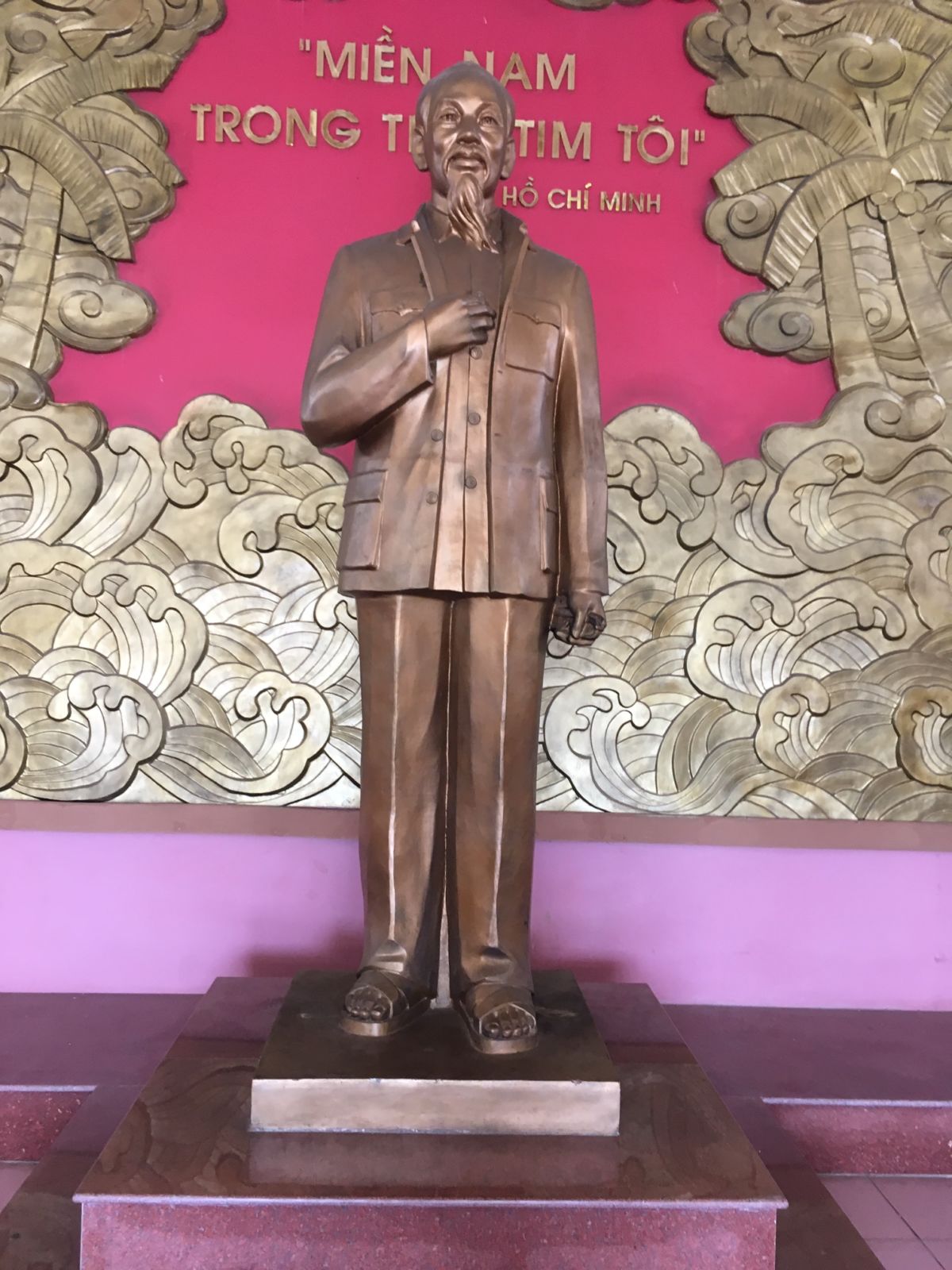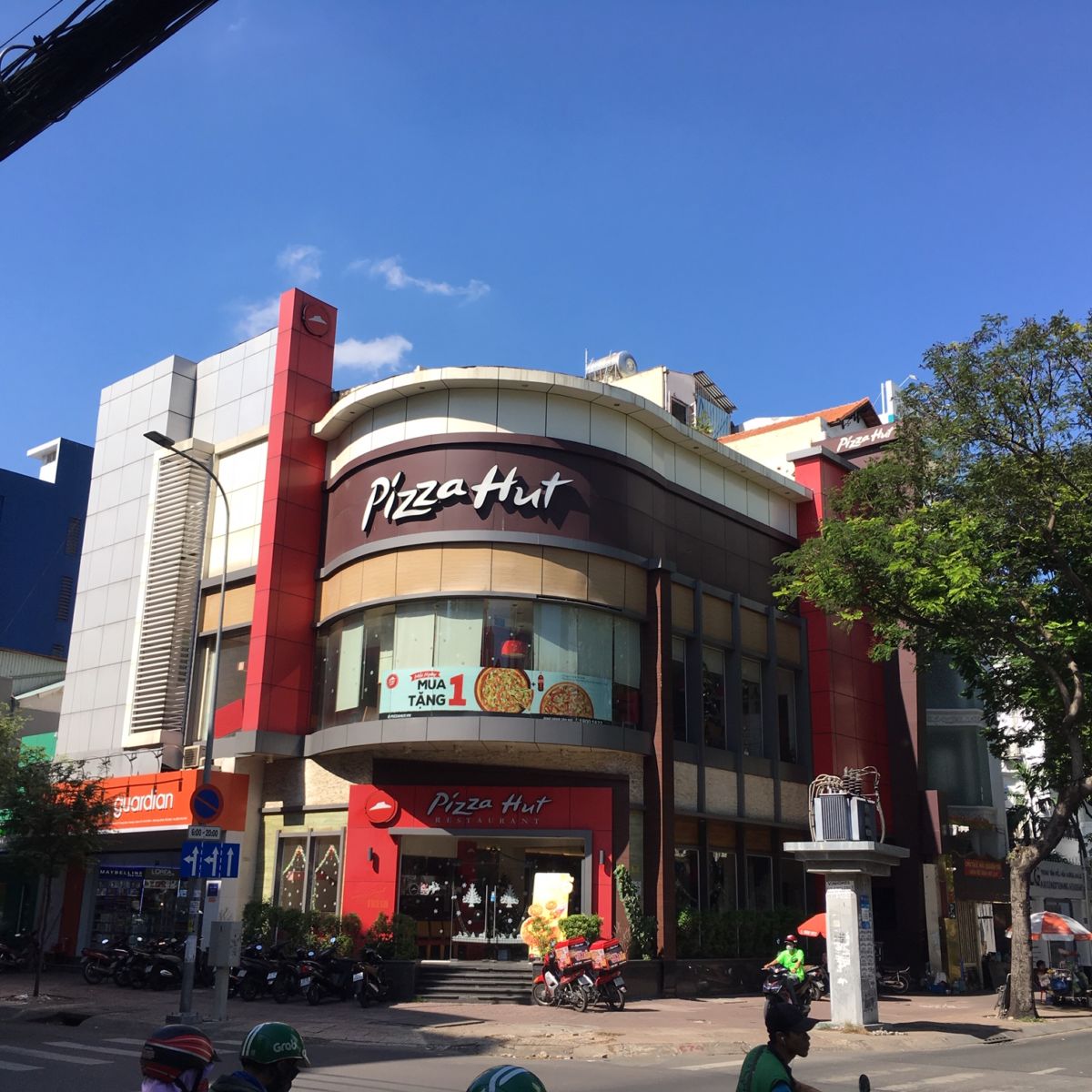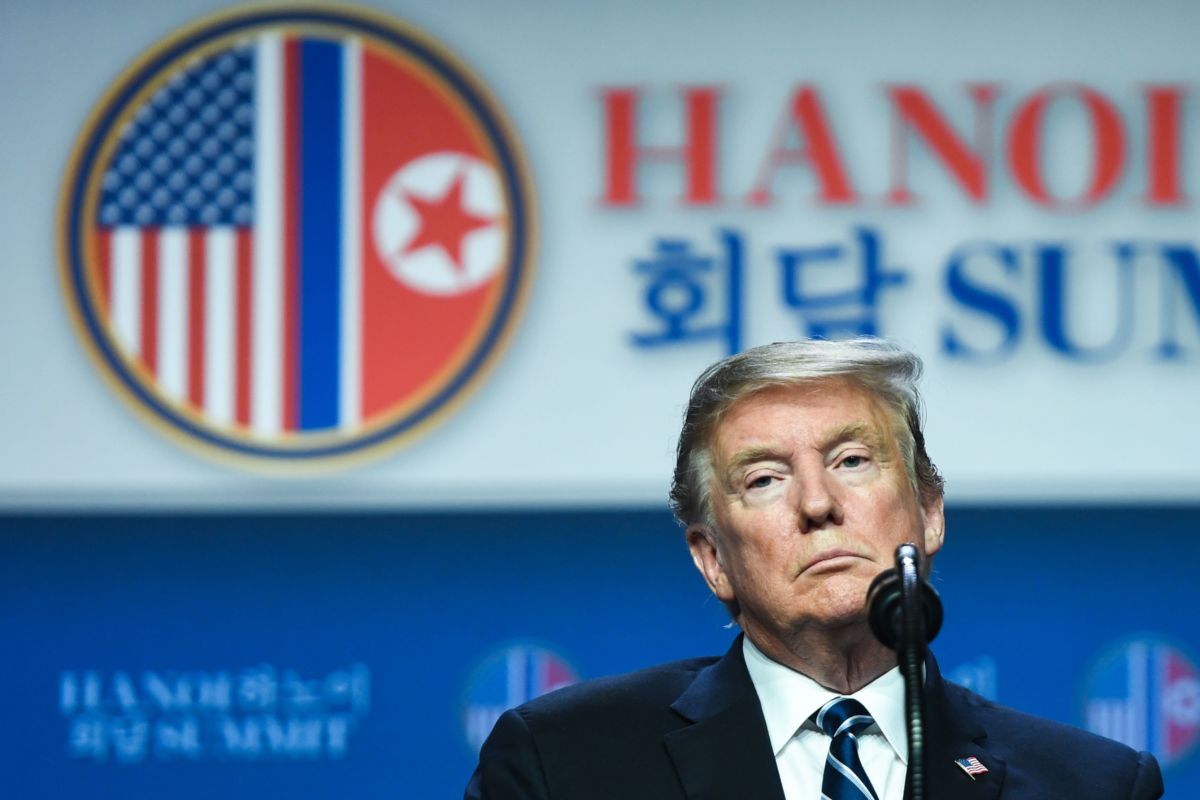Support justice-driven, accurate and transparent news — make a quick donation to Truthout today!
Before Donald Trump’s February summit with Kim Jong Un in Hanoi, Vietnam, The Washington Post ran an article headlined, “The US wants North Korea to follow the ‘miracle’ of Vietnam’s path.”
“In light of the once-unimaginable prosperity and partnership we have with Vietnam today, I have a message for Chairman Kim Jong Un: President Trump believes your country can replicate this path,” Secretary of State Mike Pompeo said, as quoted in The Post article.
In 2019, the evolution of Vietnam toward capitalism, praised by the Trump administration, is not without irony. A ruinous and brutal U.S. war against North Vietnam and its Viet Cong supporters in the south ended with the U.S. withdrawal of military troops in 1973, followed by a complete end to the conflict in 1975.
Indeed, it was a little under 45 years ago that the U.S. military departed Vietnam with more than 58,000 soldiers dead and its tail between its legs. In the end, the North Vietnamese forces had won a decisive victory against the United States and the South Vietnamese army (the Army of the Republic of Vietnam). The North and South Vietnamese combatants lost nearly 1.5 million soldiers and at least 2 million civilians. According to The Balance, “Vietnam was the most heavily bombed country in history.”
Nearly three times more bombs were dropped on Vietnam than the U.S. used in World War II. In addition, 20 million gallons of herbicides were used to clear plants and trees in an effort to try and expose the Viet Cong. There was also the widespread use of the toxic Agent Orange, napalm and other deadly chemicals. The legacy that the U.S. left behind in Vietnam was gruesome and full of atrocities.

The bloody combat could have been avoided. Following World War II, Ho Chi Minh had written to President Harry Truman, seeking his support to prevent the French from returning to govern Vietnam as a colony. Truman ignored Minh’s appeal and even began supporting the French military struggle for control in 1950. When the French were routed in 1954 at Dien Bien Phu, the country was divided into North and South Vietnam by an international agreement. It did not take long for the U.S. to begin supporting a puppet “democratic” government in the South, leading to a full-fledged conflict with North Vietnam in the ’60s.
After the war with the U.S. and South Vietnam was over, North and South Vietnam became one unified communist state.
The United States justified the conflict as a means to stop the spread of communism during the Cold War. Vietnam historically had an often antagonistic relationship with China, however, so, U.S. leaders’ fear of the Chinese Communist Party controlling Vietnam along with the Soviet Union was a toothless Cold War fear. Indeed, that fear became a moot point when in the late 1980s, the Vietnam Communist Party began to turn from socialism and government-owned industries to betting its economic future on neoliberal capitalism.
Vietnam’s shift to capitalism, which now is in full swing, came partly as a result of several factors. Firstly, the nation was economically devastated by the war with the U.S. — particularly the bombing of infrastructure and agricultural fields. Compounding this obstacle, the nation had traditionally been reliant on subsistence agricultural production, which hampered industrialization of the nation. Furthermore, the U.S. embargo against Vietnam was not officially lifted until 1994. In addition, with the fall of the Soviet Union and the movement of China toward state capitalism, Vietnam followed suit.
John Battelle wrote about Vietnam’s neighbor in a recent commentary, “The End of Democratic Capitalism,” in Medium: “It’s now inarguable that the most muscular version of capitalism worldwide is the brand currently practiced by the Chinese state. Let’s call it autocratic capitalism — for it is a market-driven economic system where the market is controlled by an autocratic state.”
Battelle adds “Growth is capitalism’s most sacred goal, and the Chinese know it.” So, apparently, do the single-party rulers of Vietnam.

As USA Today states in a 2015 article, “Vietnam … may actually be one of the most pro-capitalist countries on Earth. Almost all Vietnamese people — 95% of them — now support capitalism, according to the Pew Research Center, which polled nearly 45 nations late last year on economic issues.” In the United States, by contrast, Pew found that only 70 percent thought a “free market” system was ideal.
As early as 1993, U.S. multinational corporations began seeking out investments in Vietnam. A February 3, 1993, New York Times article noted, “Almost 18 years after United States diplomats fled Saigon before the advancing communist troops, American capitalists are trickling back, hoping to employ their former enemies and ready the country for a corporate invasion.”
Although the U.S. lags behind Asian nations, such as South Korea, China and Japan, in investment in Vietnam, its presence is visible throughout the country, whether it be in Kentucky Fried Chicken and McDonald outlets, Coca-Cola or other Western and Asian name brands and corporations. At the center of Ho Chi Minh City (Saigon) stands the opulent Park Hyatt Hotel, a sprawling symbol of gilded capitalism. Room rates there begin at $350 a night. Indeed, Vietnam is so eager to seek U.S. capital investment that it has downplayed the catastrophic war by only sparingly reminding citizens and tourists that it ever occurred.
For example, in Ho Chi Minh City the former Exhibition House for U.S. and Puppet Crimes first had its name changed to the Exhibition House for Crimes and War Aggression and then in 1995 to the euphemistic War Remnants Museum. There one can see the destruction and massive death caused by the U.S. and French when they failed to recolonize Vietnam after WWII, but the tone is muted. Smaller museums (including the “Hanoi Hilton,” where John McCain was imprisoned) and war sites are scattered around the country. They often appear to be relics from a long time ago.
There are occasional outdoor displays in Vietnam of U.S. military equipment left behind in the rush to end the war. They are few in number and some have the appearance of junkyards. There is little signage that even identifies the hardware with the destructive conflict with the U.S. The majority of Vietnamese people were born after the war, and the state has its eyes on becoming a “developed nation,” not on looking backward.
The move to an energized capitalism is now overseen by Nguyen Phu Trong, who last autumn assumed the dual roles of Communist Party secretary and president of Vietnam. If any animosity remains toward the U.S., it was hard to find it, as I traveled from Hanoi to Ho Chi Minh City this past December, in a nation that now values individual economic competition and gain over socialist principles. A Pew 2017 poll found that 84 percent of Vietnamese citizens had a positive view of the U.S.
The state still controls many areas of the economy, such as much of the land use and investment in a variety of ventures, including the lucrative area of tourism. Indeed, up to one-third of the Vietnamese economy is still state owned. The country, however, joined the World Trade Organization in 2007, in return for capital and trading opportunities, and all but surrendered its economic adherence to communism.
Primarily due to the influx of foreign capital, Vietnam has been experiencing a 6 percent to 7 percent gross domestic growth in the past few years. Many of the more than 90 million Vietnamese citizens are rising to the middle class, but, as in the U.S., only a few are rising to the top income tier – and many are left eking out a barely livable existence.
Those who work for well-paying foreign companies and enjoy larger salaries – and those in the booming tourist industry – have created a market for global products. The “haves” have become ardent consumers. Vietnam Briefing found “a survey conducted by Nielsen concluded that Vietnam ranks third in the world in terms of fondness for branded goods.”
Many expensive brands have a presence in Vietnam. They include, according to Vietnam Briefing, Louis Vuitton, Dior, Burberry, Ermenegildo Zegna, Bulgari and Hermes. The Briefing notes that “the Hermes boutique in Hanoi, opened in 2008, increased its profits gradually by 20 to 30 percent each year.”
Although the primary means of transportation in Vietnam is motorbikes, dealers for luxury cars have also opened. The ownership of automobiles is rising, particularly in Ho Chi Minh City.
Most financial analysts who specialize in Vietnam put the poverty rate in 2018 at about 10 percent (down from about 85 percent in 1993), but that is a relative figure in a nation where the average worker’s salary is somewhere just below $2200.
Vietnam’s recent financial growth is not solving the country’s economic disparities. In fact, it is increasing them. In Vietnam what is evident is the inevitable result of soaring capitalism: income inequality. What is happening there is one more example of how economic injustice is built into capitalism even in a nation whose government is nominally communist.
Indeed, a 2017 analysis by Oxfam warns of signs that Vietnam is moving toward an increasingly inequitable society. It does not help, the report finds, that the tax system in Vietnam is generally regressive. This means that Vietnamese citizens are subject to many flat taxes and fees, regardless of income. Since 2009, corporate taxes have been reduced from 28 to 20 percent. And, the report notes, “tax avoidance and evasion are also letting the richest multinationals off the hook and sucking money out of the budget.” Therefore, the tax burden disproportionately relies on lower income earners, many of them rural farmers and members of Indigenous populations.

The Oxfam study flatly states, “Economic inequality in Vietnam is growing by any measure. World Bank data shows that income inequality in Vietnam has increased in the last two decades, and more importantly, the richest are taking a disproportionate share of income.”
Oxfam notes that advancement opportunities for those in the lower economic strata are hampered by barriers such as tuition for secondary education and charges for essential supplies for primary school, such as textbooks. As another example of disparity, Oxfam explains that Vietnam’s health system is more accessible to the wealthy. Many of the costs normally absorbed by a socialist state are being offloaded to individuals, many of them of limited means.
As the UN confirmed as early as 2008, the glaring injustice of Vietnam’s rush to capitalism is the economic division it is creating among the nation’s citizens: “According to statistics … 29.9 percent of the gross national income is held by rich people, who account for just 10 percent of the population.” The concentration of money among the wealthy and upper middle class has only increased since that time, as the Oxfam report concluded.
Meanwhile, the nominally communist government severely limits free speech. As Foreign Policy notes, Vietnam wants to curry the favor of Western politicians and global corporations, but not to open up the nation into a forum for democracy. That is just fine with the U.S., especially with Donald Trump.
What is important to the U.S. government is nations directing their economies to global capitalism. That they evolve into democratic societies, despite bipartisan platitudinous claims to the contrary, is of secondary and minimal priority to D.C. policy makers.
In fact, single-party governments that adopt capitalistic economic systems are more stable as far as corporations and investors are concerned. Therefore, multinational corporations may prefer a “communist” Vietnam or China to nations that allow an unpredictable democratic process.
Conveniently overlooked by the U.S. government’s glee at the explosion of global capitalism in Vietnam is the alleged corruption of the Vietnamese government. A 2015 Guardian article stated, “Transparency International last year reported that Vietnam is perceived to be one of the most corrupt countries in the world, doing worse than 118 others and scoring only 31 out of a possible 100 good points on its index.”
It is hardly a new development that the U.S. government downplays economic inequity and corruption in governments that it supports. Why would the U.S. government be concerned about economic injustice in Vietnam when it fosters it at home? As for the tolerance of corruption, look no further than the Trump White House.
Ho Chi Minh died in 1969, six years before the North Vietnamese army took control of South Vietnam. By the late 1980s, five-year collectivization plans — and the other factors cited earlier in this article — had failed to improve the economy. As a result, Vietnam has embarked on a path that makes it a member of the global neoliberal community, which ensures that inequity and corruption will continue to persist there.
Trump is silencing political dissent. We appeal for your support.
Progressive nonprofits are the latest target caught in Trump’s crosshairs. With the aim of eliminating political opposition, Trump and his sycophants are working to curb government funding, constrain private foundations, and even cut tax-exempt status from organizations he dislikes.
We’re concerned, because Truthout is not immune to such bad-faith attacks.
We can only resist Trump’s attacks by cultivating a strong base of support. The right-wing mediasphere is funded comfortably by billionaire owners and venture capitalist philanthropists. At Truthout, we have you.
Truthout has launched a fundraiser, and we have only 72 hours left to raise $24,000. Please take a meaningful action in the fight against authoritarianism: make a one-time or monthly donation to Truthout. If you have the means, please dig deep.
